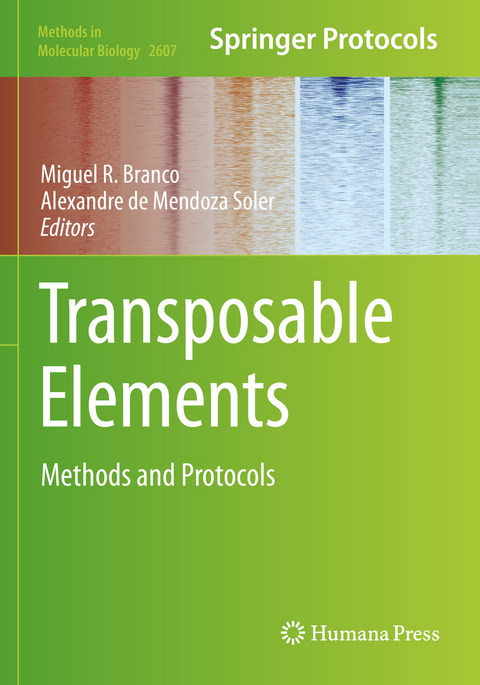
Transposable Elements
Springer-Verlag New York Inc.
978-1-0716-2885-0 (ISBN)
Authoritative and cutting-edge, Transposable Elements: Methods and Protocols aims to be a useful practical guide to researches to help further their study in this field.
An overview of best practices for transposable element identification, classification and annotation in eukaryotic genomes.- Assembly-free annotation and quantification of transposable elements with dnaPipeTE.- Best practice for the identification of horizontally transferred transposons.- Genotyping of transposable elements insertions segregating in the human populations using short-read re-alignments.- A Pangenome approach to detect and genotype TE insertion polymorphisms.0 Experimental validation of transposable element insertions using the Polymerase Chain Reaction (PCR).- Quantification of LINE-1 RNA expression from bulk RNA-seq using L1EM.- Genome-wide profiling of L1 DNA methylation by bs-ATLAS-seq.- Nanopore epigenomic analysis of transposable element DNA modifications.- Targeted resequencing and methylation analysis of L1 elements by nanopore sequencing.- Inferring protein-DNA binding profiles at interspersed repeats using HiChIP and PatChER.- Affinity-based Interactome Analysis of Endogenous LINE-1 Macromolecules.- LINE-1 retrotransposition assays in embryonic stem cells.- Detecting somatic transposable element insertions in Drosophila tissues.- Precise and scarless insertion of transposable elements by Cas9-mediated genome engineering.- Epigenetic editing of transposable and repetitive elements.- Using CRISPR to investigate the regulatory activity of transposable elements.
| Erscheinungsdatum | 02.12.2023 |
|---|---|
| Reihe/Serie | Methods in Molecular Biology |
| Zusatzinfo | 60 Illustrations, color; 5 Illustrations, black and white; XII, 382 p. 65 illus., 60 illus. in color. |
| Verlagsort | New York, NY |
| Sprache | englisch |
| Maße | 178 x 254 mm |
| Themenwelt | Mathematik / Informatik ► Informatik ► Theorie / Studium |
| Informatik ► Weitere Themen ► Bioinformatik | |
| Naturwissenschaften ► Biologie ► Genetik / Molekularbiologie | |
| Schlagworte | ChIP-Seq • CRISPR-Cas9 • KZNFs • Nanopore • polymorphic transposons |
| ISBN-10 | 1-0716-2885-2 / 1071628852 |
| ISBN-13 | 978-1-0716-2885-0 / 9781071628850 |
| Zustand | Neuware |
| Informationen gemäß Produktsicherheitsverordnung (GPSR) | |
| Haben Sie eine Frage zum Produkt? |
aus dem Bereich


